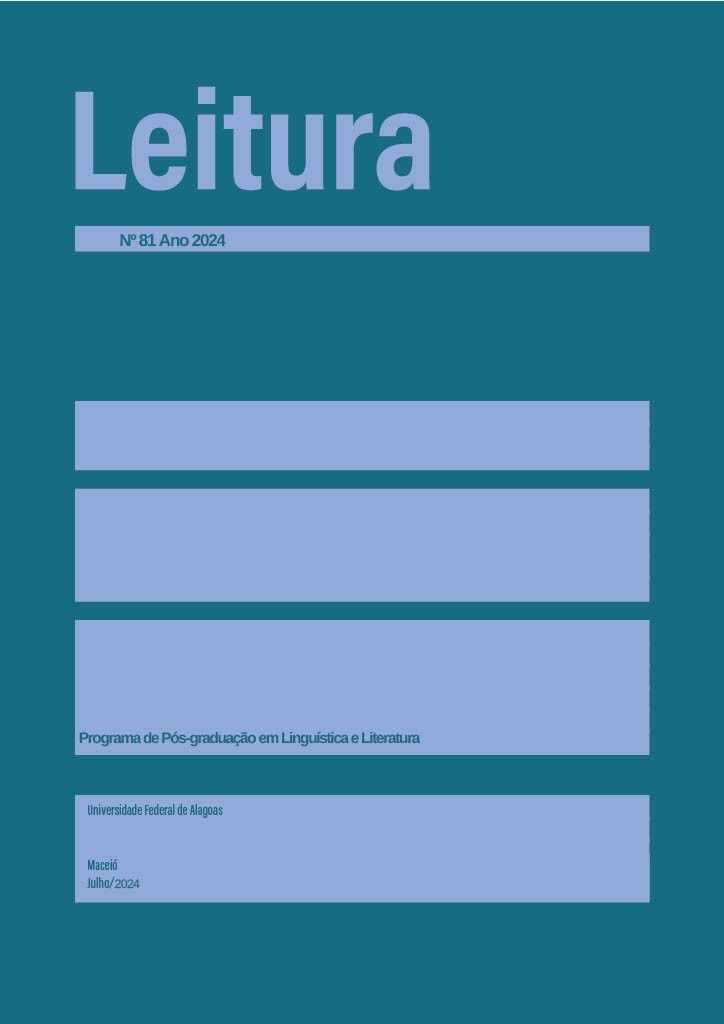Percepções de aprendizes sobre a utilização do WhatsApp para o desenvolvimento da produção oral em inglês como L2
DOI:
https://doi.org/10.28998/2317-9945.202481.59-73Abstract
The purpose of this study is to investigate the perceptions of learners regarding the use of WhatsApp as a tool for oral production in English as a L2. In order to achieve this goal, forty-six volunteer students from the courses of Information Technology, Agro-industry and Farming have participated in the research. The data were generated through the application of a questionnaire, in which there were two Likert Scale questions and an open question. The results show that the participants perceive that the use of WhatsApp was beneficial for their oral production in L2 and that the app should be adopted in English classes. Positive and negative aspects of the pedagogical intervention were also presented. We believe this study is relevant, because it regards learners’ perceptions about the use of WhatsApp, which can guarantee democratic access to digital technologies, creating a more egalitarian society.
Downloads
References
ANDRETTA, T.; BERNARDI, G.; ZANKI CORDENONSI, A. Whatsapp no contexto educacional: uma revisão sistemática de literatura. RENOTE, Porto Alegre, v. 17, n. 1, p. 365–374, 2019. DOI: 10.22456/1679-1916.95843. Disponível em: https://seer.ufrgs.br/index.php/renote/article/view/95843. Acesso em: 12 dez. 2022.
BOUHNIK, D.; DESHEN, M. WhatsApp goes to school: Mobile instant messaging between teachers and students. Journal of Information Technology Education, v.13, n. 2, p. 217-231, 2014.
COSTA, G. Mobile learning: explorando potencialidades com o uso do celular no ensino-aprendizagem de língua inglesa como língua estrangeira com alunos da escola pública. 2013. 201f. Tese (Doutorado em Letras) – Departamento de Letras, Universidade Federal de Pernambuco. Recife, 2013.
DÖRNYEI, Z. Research methods in applied linguistics: quantitative, qualitative and mixed methodologies. Oxford: Oxford University Press, 2007.
ELLIS, R. The Differential Effects of Three Types of Task Planning on the Fluency, Complexity, and Accuracy in L2 Oral Production. Applied Linguistics, v.30, n. 4, p. 474-509, 2009.
FREIRE, P. Pedagogia da Autonomia: Saberes necessários à prática educativa. São Paulo: Paz e Terra, 1998
GOMES, Patrícia. 10 dicas e 13 motivos para usar celular na aula. 25 fev. 2013. Disponível em: https://porvir.org/10-dicas-13-motivos-para-usar-celular-na-aula/. Acesso em: 30 de out. de 2020.
HAN, T.; KESKIN, F. Using a Mobile Application (WhatsApp) to Reduce EFL Speaking Anxiety. Gist Education and Learning Research Journal, n.12, p. 29-50, 2016.
KRASHEN, S. The input hypothesis: Issues and implications. New York: Longman, 1985.
LEVELT, W. Speaking: From intention to articulation. Cambridge, Massachusetts: The MIT Press, 1989.
MATTAR, J. Web 2.0 e redes sociais na educação. São Paulo: Artesanato Educacional, 2014.
OLIVEIRA, S. O impacto das tarefas de aprendizagem mediadas pela lousa digital interativa na motivação situacional dos aprendizes de inglês. 2014. 146f. Dissertação (Mestrado em Letras) – Pós-graduação em Estudos da Linguagem, Universidade Federal do Rio Grande do Norte. Natal, 2014.
RAMBLE, P.; CHIPUNZA, C. Using mobile devices to leverage student access to collaboratively-generated resources: a case of Whatsapp instant messaging at a South African University. International Conference on Advanced ICT, v. 33, p. 331-337, 2013.
SCHMIDT, R. The Role of Consciousness in Second Language Learning. Applied Linguistics, v. 11, p. 129-158, 1990.
SKEHAN, P. Second language acquisition research and task-based research. In: WILLIS, J. WILLIS, D. (Eds.) Challenge and change in language teaching. Heinemann: Oxford, 1996. p. 17-30.
SKEHAN, P.; FOSTER, P. The influence of planning and post-task activities on accuracy and complexity in task based learning. Thames Valley University. Working Papers in English Language Teaching, v. 3, 1996.
SOUSA, L. A ferramenta VoiceThread em uma abordagem híbrida: o desenvolvimento da produção oral e da habilidade de noticing na aprendizagem de inglês como L2. 2014. Dissertação (Mestrado em Letras) – Pós-graduação em Estudos da Linguagem, Universidade Federal do Rio Grande do Norte, Natal, 2014.
SWAIN, M. Communicative Competence: Some roles of Comprehensible Input and Comprehensible Output in its Development. In: GASS, S.; MADDEN, C. (Eds.).Input in second language acquisition. Rowley, MA: Newbury House, 1985. p. 235–253.
______. The output hypothesis: just speaking and writing aren’t enough. Canadian Modern Language Review, Toronto, v. 50, n. 1, p.158-64, 1993.
______. Three functions of output in second language learning. In: COOK, G.; SEIDLHOFER, B. (Eds), Principles and practice in the study of language. Oxford: Oxford University Press, 1995. p. 125-144.
SWAIN, M; LAPKIN, S. Problems in output and the cognitive processes they generate: A step towards second language learning. Applied Linguistics, v. 16, n. 3, p. 371-391, 1995.
WEISSHEIMER, J.; CALDAS, V. The effects of implicit and explicit classroom feedback on bilingual speech production. PROLÍNGUA, [S. l.], v. 15, n. 2, p. 198–211, 2021. Disponível em: https://periodicos.ufpb.br/index.php/prolingua/article/view/54929. Acesso em: 28 mar. 2023.
WEISSHEIMER, J; CALDAS, V; MARQUES, F. Using WhatsApp to develop L2 oral production. Revista Leitura, Maceió, v. 1, n. 60, p. 21-38, jan./jun. 2018.










